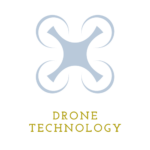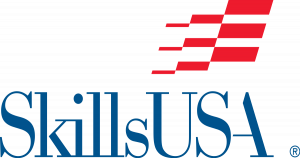Drones for Law & Public Safety Pathway
Recommended Pathway for Drones in Law & Public Safety
The courses below are recommended by our Board and network of industry experts. Each course link will lead to a page with lesson plans, national standards, and resources. For more information, feel free to email info@laspen.org
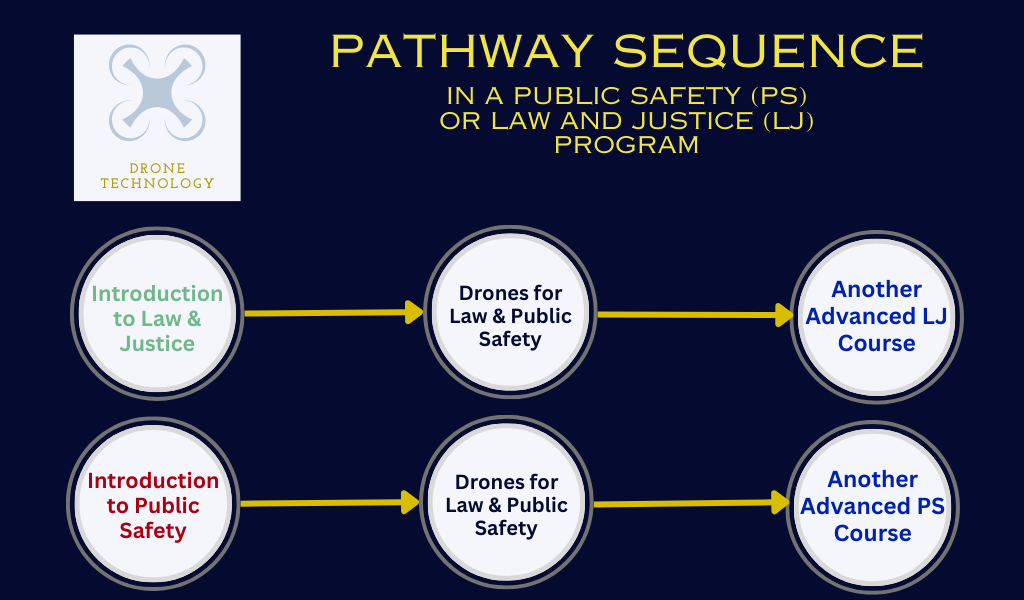
This is a national exemplar. Each state makes decisions on how to best serve their industry and school programs. Always refer to state and local guidelines for implementation.
Introduction Course – Introduction to Law and Public Safety (ILPS)
It is recommended that a drones pathway begin with a broad based introduction to the law and public safety system. Drone professionals are a key part of the larger law and public system, so a critical starting point for the pathway is an exploration of the larger ecosystem the drone operators live in. Additionally, it is advised that a high school pathway in drones not become so specific to drones exclusively that participants are not exposed to other elements in LPS. The broader approach helps with marketing to encourage students to enroll.
Visit our Introduction to Law and Public Safety course page – with unit lesson plans – Click Here
Core Course – Drones for Law and Public Safety (DLPS)
This course prepares students for certifications to operate drones in the law and public safety environment. First students will complete the necessary training to be prepared to pass the FAA 107 Pilot test. Students will then train in remote sensing and photogrammetry. Students will learn how to prepare and plan for law and public safety operations. A significant portion of the course time will be dedicated to developing flight skills and performing maneuvers necessary for such operations. Using the National Institute of Standards and Technology national standard performance test for unmanned aerial vehicles, students will train for real world applications.
Visit our Drones for Law and Public Safety course page – with unit lesson plans – Click Here
Third+ Course Options
Note – we are in the middle of major updates. We hope to have everything ready by the end of winter.
LAPSEN recommends pathways have flexibility for local systems to adjust to local needs. It is also recommended that a “deeper dive” into SPS-related content come from dual enrollment opportunities, if possible. The SPS course covers secondary educational needs adequately. To maximize student career preparation, engagement, and marketing it is suggested to offer courses similar to those listed below to complete the pathway.
Option 1 – Law Enforcement (LE)
The Law Enforcement course may be the best option. There are numerous crossovers in skill sets and practices. The Law Enforcement course prepares individuals to perform the duties of police and security officers, including patrol and investigative activities, traffic control, crowd control, public relations, witness interviewing, evidence collection and management, court procedures and the law in general. Basic crime prevention methods, weapon and equipment operation, equipment maintenance, and other routine law enforcement responsibilities are also included.
Visit our Law Enforcement course page – Click Here
Option 2 – Criminal Investigations and Forensics (CIF)
CIF is another great option as it is both marketable and industry is demanding more investigation skills for career candidates. Students will learn how crimes are investigated in America. Hands on skills in crime scene processing and recording will be covered as well as evidence handling. Students will learn how investigations are initiated and conducted as well as how constitutional restraints guide investigations. Techniques in interviews and interrogations will be practiced. Students will also learn about criminological theories and how they are applied to the investigation process.
Visit our Criminal Investigations and Forensics course page – Click Here (page is under revision and should be completed soon)
Option 3 – Drones for Law and Public Safety (DLPS)
Bring some excitement to your pathway! This course prepares students for certifications to operate drones in the law and public safety environment. Drones are increasingly used in SPS areas. First, students will complete the necessary training to be prepared to pass the FAA 107 Pilot test. Students will then train in remote sensing and photogrammetry. Students will learn how to prepare and plan for law and public safety drone operations. A significant portion of the course time will be dedicated to developing flight skills and performing maneuvers necessary for such operations. Using the National Institute of Standards and Technology national standard performance test for unmanned aerial vehicles, students will train for real world applications.
Visit our Drones for Law and Public Safety course page – Click Here
Other Options
There are many options that local systems can review that may fit more appropriately.
Visit our overall course page – Click Here
Industry Recognized Credential (IRC) for the Drones Pathway
This course is deigned to adequately prepare students for all three IRCs.
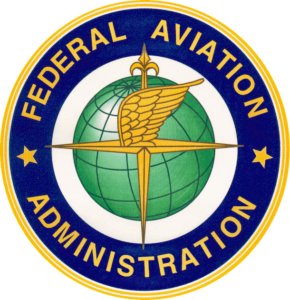 FAA Part 107
FAA Part 107
FAA Part 107 test is only offered at FAA-authorized testing centers. Cost of the test – $175. Click Here to learn more.
Implementation options:
- Plan on 60 hours in the DLPS course to review content and prepare students to test with plenty of flight time – this is what we recommend.
- Have students complete the FAA Part 107 independently
- Enroll students in an online preparation course
The FAA Part 107 is basic licensing for commercial drone use.
Instructors do not need any special training for this section, however it is recommended teachers complete FAA Part 107 certification.
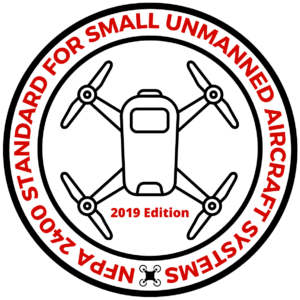 NFPA 2400 Standard for Small Unmanned Aircraft Systems (sUAS) Used for Public Safety Operations (2019 edition)
NFPA 2400 Standard for Small Unmanned Aircraft Systems (sUAS) Used for Public Safety Operations (2019 edition)
This part of the certification process begins to focus on public safety skills sets. This part requires 25-30 hours of class time including skills practice and evaluation. To read more on NFPA 2400 Click Here.
Instructors will need to be certified to offer student certification.
Student Certification
- The NFPA certification test covers part of the requirement.
- Cost – $25 or $20 for LAPSEN members.
- Cut Score – 70
- To order tests Click Here.
- Teachers will sign off on student skill achievements to complete the certification.
For more specific information on instructor training: Click Here
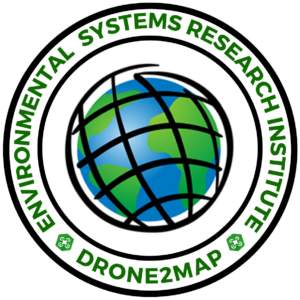 ESRI Drone2Map
ESRI Drone2Map
This part of the certification process begins to focus on integrating drone data into 2D and 3D mapping applications. This part requires 25 hours of class time. To read more on ESRI Drone2Map Click Here.
Instructors will need to be certified to offer student certification.
Student Certification
- Passing the Drone2Map test results in certification.
- Cost – $25 or $20 for LAPSEN members.
- Cut Score is 70
- To order test Click Here
- Teachers will sign off on student skill achievements to complete the certification.
For more specific information on instructor training: Click Here
 Training
Training
Instructors in the LS pathway need to have industry experience or training. If you have a specific training need email info@lapsen.org
Click Here to go to our Training Schedule
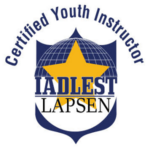 Be the Best
Be the Best
IADLEST – the national organization of state police certification agencies – together with LAPSEN have established a certification to identify the best in America working with youth interested in LPS careers.
Click Here to learn more.
Competitions
The DLPS pathway national CTSO is SkillsUSA. There are several ways for DLPS program students to participate in SkillsUSA
For more information visit www.skillsusa.org/competitions or reach out to info@lapsen.org
Commercial sUAS Drone
This competition for a team of 2 is designed to evaluate team members’ skills in the safe and efficient use of drone technology
Criminal Justice
This competition is a single competitor preparing to be officers or to work in other areas of criminal justice.
Career Pathways - Human Services
Student teams use their course of study as the basis of a project that will benefit their class, school, community or industry.
CSI Team
This competition for a team of 3 is designed to evaluate team members’ skills in processing a crime scene.
Entrepreneurship
A team event testing students’ knowledge in starting their own businesses by developing business plans that identify needed products or services in a local market. SPS careers often lead into business development of security services.
First Aid - CPR
Basic SPS skill for a single competitor. Evaluates a competitor’s ability to perform procedures or take appropriate action based on scenarios presented related to CPR first aid medical emergencies. There is also a written exam.
Job Skill Demonstration - 3 Contests
Competitors demonstrate and explain an entry-level skill used in the occupational area for which they are training. “A” refers to skills taught in the pathway. “Open” is usually a skill learned in WBL or similar that is outside the pathway. “Action Skills” is for students with IEPs. In all cases, the skill should be hands on as it is a “demonstration.”
Robotics - Urban Search and Rescue
A student team designs and operates a robot that simulate equipment used in rescue operations.
There are dozens more that cover everything from speeches to specifc skill sets.
TTAG Team – Support
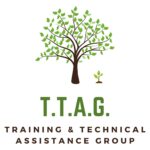 The Training & Technical Assistance Group (TTAG) is here to help you! From emails and phone calls to onsite visits, these fellow educators are here to help! See the bottom of the page for TTAG members in LE.
The Training & Technical Assistance Group (TTAG) is here to help you! From emails and phone calls to onsite visits, these fellow educators are here to help! See the bottom of the page for TTAG members in LE.
Click Here to learn more.
Student Recognition

Your students can be members of the National Technical Honors Society PLUS a special endorsement for achievement in law and public safety! Don’t have an NTHS – they are super easy to start and no extra work.
Click Here to learn more.
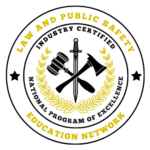 Programs of Excellence
Programs of Excellence
The national Industry Credentialed Program of Excellence (ICPE) is designed to make the best better. Applicant programs must demonstrate competencies across several standards. LAPSEN specialists assist applicant programs throughout the process with training, guides and mentorship.
Click Here to learn more. Do YOU have the BEST program?
National Program Directory
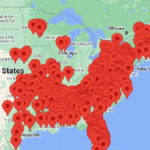 The National Census of Youth Law Enforcement Programs was funded by the DOJ COPS grant program.
The National Census of Youth Law Enforcement Programs was funded by the DOJ COPS grant program.
Search the directory for programs near you – Click Here
Is your program is in the directory? If not: Click Here
Training and Testing Materials
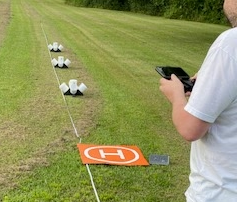
NFPA 2400 NIST Props, NIST Test Supplies
The U.S. National Institute of Standards and Technology (NIST) developed a comprehensive set of standard test methods and associated performance metrics to quantify key capabilities of emergency response robots. This is the drone training prop recommended by NIST.
Wayne at Clement Drone Supply has a great product that LAPSEN uses. Click Here to visit Clement Drone

ESRI Drone to Map Software
ESRI provides complimentary software to high schools.
Support
These educators and industry specialist have volunteered to help you. They are your network of support.
National Drones Specialist – Wayne Bailey
Learn more about Wayne – Click Here for his Linkedin
Brief Bio: Click Here
Email Wayne – Click Here
Wayne is heading up this new technology. Drones are increasingly appearing in Public Safety Applications.

Adminstrative Drones Specialist – David Barbour
Learn more about David – Click Here for his Linkedin
Brief Bio: Click Here
Email David – Click Here
David is a trailblazer in drone instruction in CTE. He is also becoming quite the drone pilot.

Starting a Drone program? Need more info? Reach out to our specialist Wayne Bailey:
FAA 107 is a part of the piloting process to be licensed. Blue Ridge Drones can work with school systems to offer such training for instructors. Larger systems can get all their instructors done together.
Reach out to your Ag, Engineering and Film CTAE programs as they also can offer this traing to their students.
The 107 course offered by Blue Ridge – This course prepares public safety/emergency responders for small Unmanned Aircraft Systems (sUAS)/Drone flight certification. Topics include flight theory, flight operations, and flight training utilizing the Federal Aviation Administration (FAA) Remote Pilot – Small Unmanned Aircraft Systems Study Guide, Learners will gain an introduction to commercial, government, and recreational drone applications. Coursework will highlight topics such as regulations, weather, airspace, human factors, and sUAS performance. There will also be an opportunity for hands-on flying drones. Upon completion, students will be prepared to sit for the FAA Part 107 Remote Pilot Knowledge Test.
Rach out to Wayne. He is the guru of all things drones – wayne@lapsen.org
